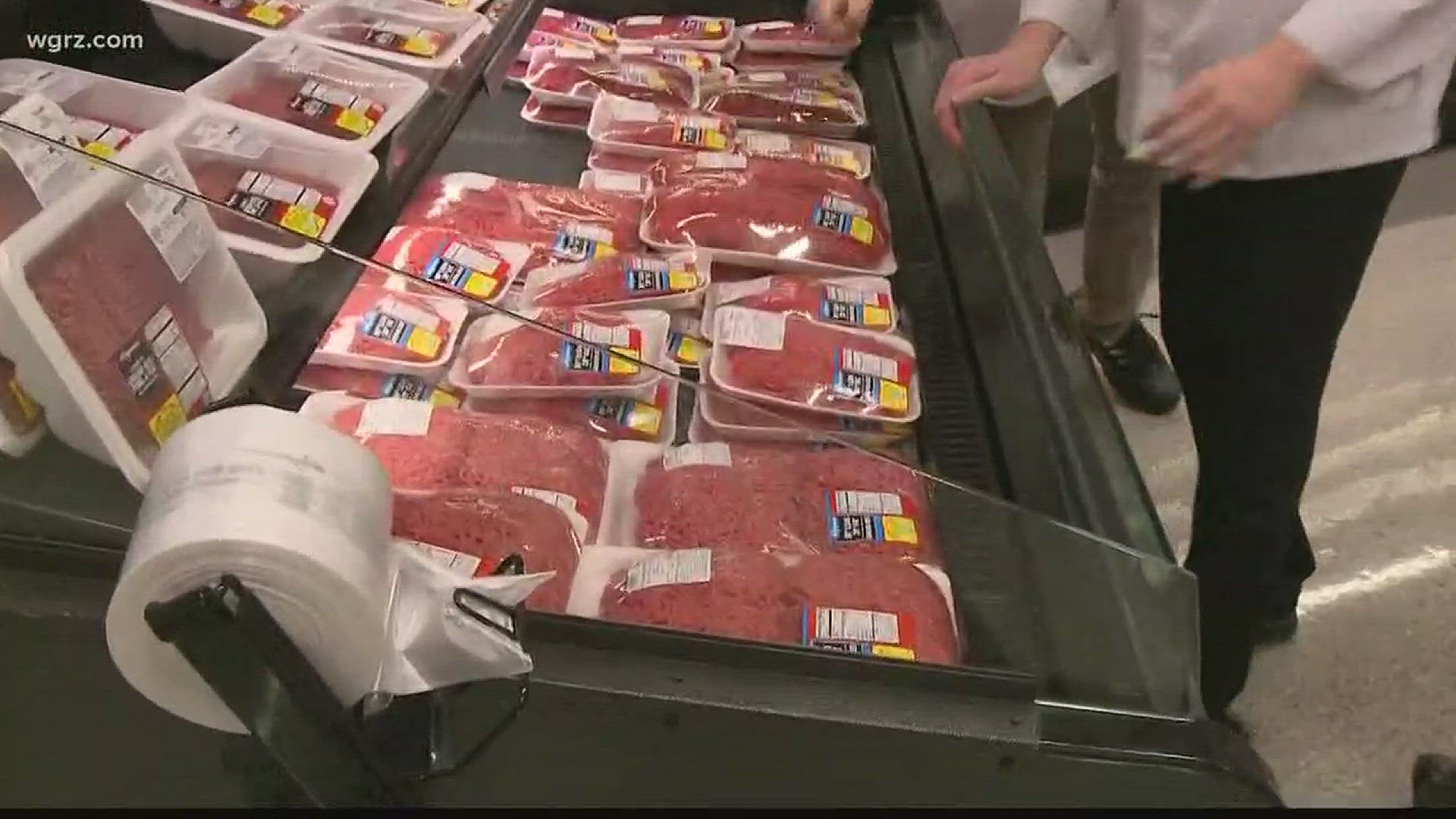By year's end 28,000 grocery and convenience stores across New York State will receive a letter grade — A, B, or C — as part of the food safety inspection process the Department of Agriculture and Markets.
The new letter grade system was implemented on January 1 to help consumers better understand which stores are following the rules and which are not.
"This is a way to raise that bar a little bit and get our retailers cooperating with us and get consumers understanding what they need to know to make a good decision about where they spend their food dollars," said Commissioner Richard Ball.
ABCs of Food Safety
An 'A' grade means no critical problems were found and the food safety program that is in place is working.
'B' means critical deficiencies were found during the inspection, but were fixed immediately. This grade also cites room for improvement.
'C' is the lowest grade and means critical problems were found during an inspection and were not or could not be fixed immediately.
"A longer term solution is required there. There may be some inadequate refrigeration, maybe evidence of rodent infestation somewhere, maybe bad temperatures in the meat case or something like that," said Ball.
Making the Grade
Roughly 2,200 grocery stores, convenience marts, and gas stations across the state were inspected in January and issued a letter grade under the new system.
During that time 121 stores in Western New York got a grade — 109 got an 'A,' two received 'B' grades, and 10 stores (listed below) got a 'C.'
- Allen Street Grocery & Deli, Jamestown
- Kwik Stop Mart, Lockport
- Save-A-Lot, Pine Avenue, Niagara Falls
- US Sugar Co., Buffalo
- KRK Food Mart, Buffalo
- Buffalo Meats and Deli, Buffalo
- Family Dollar, Bolivar Road, Wellsville
- City Minimax, Buffalo
- Ray Mart, Niagara Falls
- Progress Food Mart, Buffalo
Stores are inspected at least once each year. Grocery stores typically get inspected more often, as do businesses that have repeat safety inspection violations. Stores that get a 'C' grade will get a repeat inspection, sometimes within a week of the initial inspection.
The state will also inspect a location if a complaint is filed.
In extreme cases, the state can shut a store down until all violations are addressed. The commissioner says typically more than 80% of stores across the state get a passing grade.
"I like to think it says our inspectors are working with store owners to help them do a better job, pointing out areas where there's some risk, and in most cases our store owners are doing it right. They want to get it right," said Ball.
Retailers face a $600 fine for not posting their grade in the store, and consumers can request a copy of the inspection from the store.
The state says the inspection grade must be "posted in an obvious location near each public entrance to the retail store."
How Will the Grades Help?
Food-safety groups praised the state's new program, saying the letter system has worked in other cities that use it for restaurants.
In Los Angeles County, the number of hospitalizations from food-borne illnesses fell 13 percent compared with the rest of the state in the first year the county started a grading system for its restaurants in 1998, researchers for the National Environmental Health Association.
"Anything that improves transparency and helps to inform consumers about food safety we support," said Thomas Gremillion, director of the Food Policy Institute at the Consumer Federation of America, a Washington D.C. group that represents nonprofit consumer organizations.
Gremillion said the grades would make retailers and consumers more cognizant of the importance of meeting state inspection standards.
"Anything where you are putting pressure on retailers to improve their food safety is going to have a good outcome," he added.
The actual inspection procedure and compliance regulations have not changed in New York — just the new grades.
Sean Lahman and Joseph Spector contributed to this report. Lahman is a staff writer and database specialist at the Rochester Democrat and Chronicle. Spector is chief of USA Today Network's Albany Bureau.

